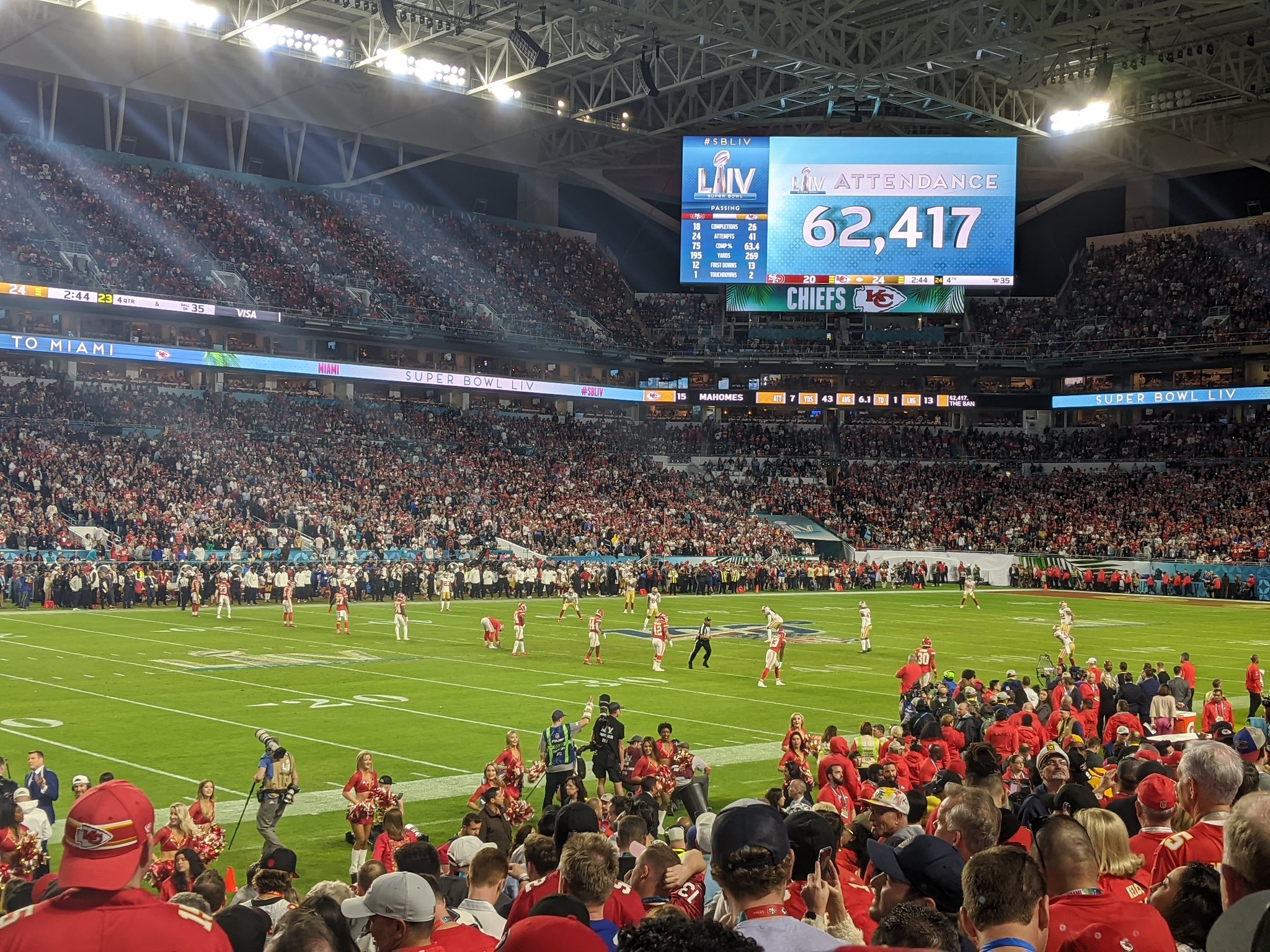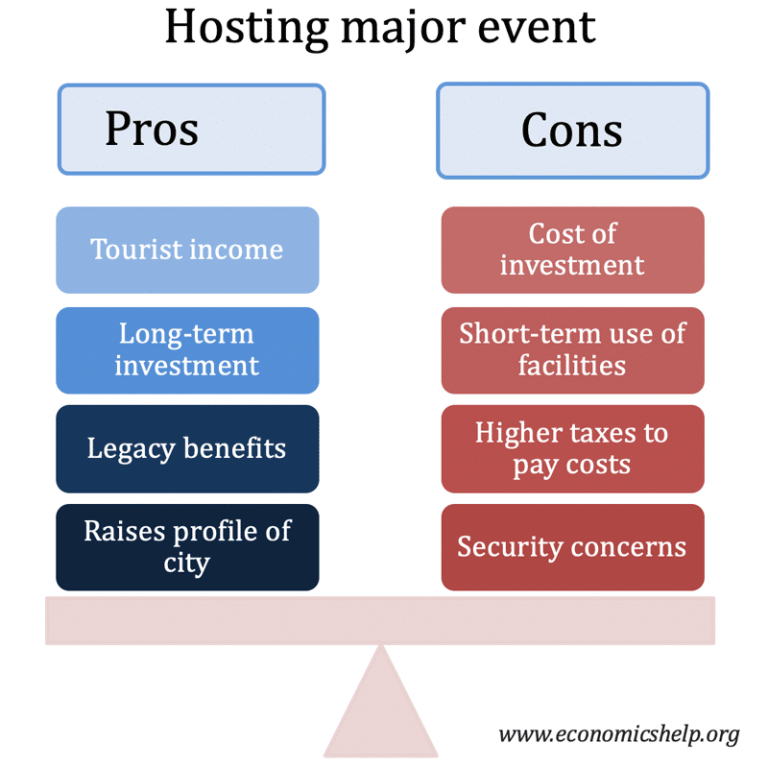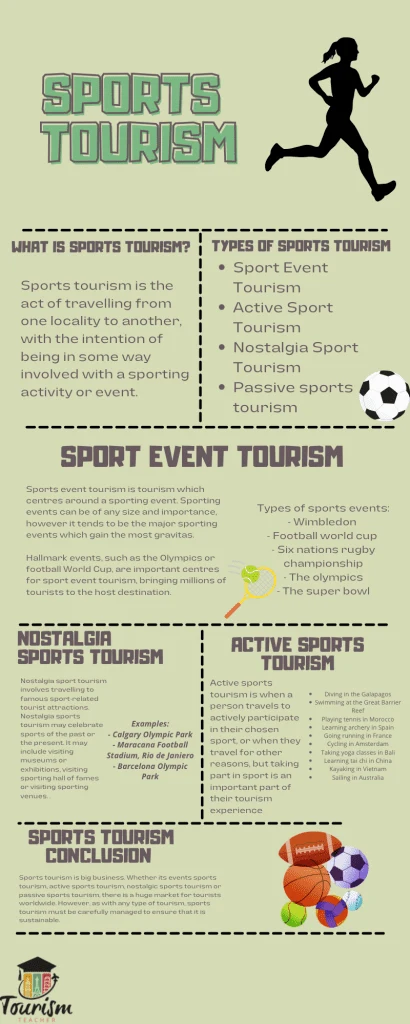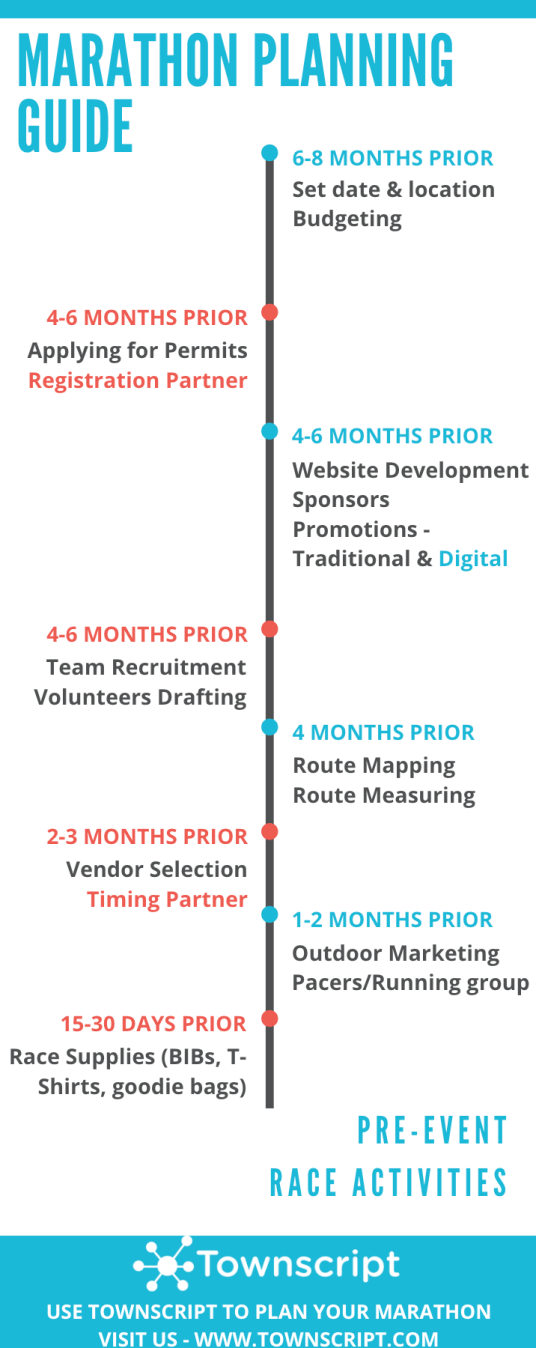How Does Sport Boost Tourism
Sport boosts tourism by attracting sports enthusiasts who travel to attend events, participate in activities and visit local attractions. Sports tourism has become a significant contributor to economic growth and development in many destinations.
Sports tourism has been growing rapidly in recent years, with people from all over the world travelling to experience various sporting activities and events. Sports tourism can encompass a wide range of activities, such as attending major sports events, participating in amateur sports tournaments, or simply taking part in recreational sports activities.
As a result, countries and cities have invested in sports infrastructure, providing state-of-the-art facilities to attract and host sports events. This has led to an increase in tourist arrivals, longer stays, and higher expenditure, generating economic benefits for the host destination. We will explore how sport boosts tourism and the benefits it brings to the industry.
Unique Sporting Events Attract Tourists
Sporting events with a unique twist can draw in crowds of tourists. From extreme competitions to historical reenactments, these events not only showcase local talent and culture, but also boost the local economy through increased tourism.
Sporting events are not just a great way to enjoy a game or competition, but they also serve as major tourist attractions for international and domestic visitors alike. Unique sporting events, in particular, are known to draw large numbers of visitors to a given location. These events can include anything from the Olympic Games to the local community’s annual marathon run. In this section, we explore examples of sporting events that boast high tourist attendance figures and how they can positively impact the local economy and drive media coverage.Examples Of Sporting Events With High Tourist Attendance
Unique sporting events play a vital role in attracting tourists to destinations around the world. These events can be a significant driver of tourism revenue for the cities hosting them. A few examples of such events include:- The Olympics, which draws millions of visitors from across the globe to the host country.
- The Super Bowl, which is the most-watched television event of the year in the United States and draws tens of thousands of visitors to the host city.
- Tour de France, which attracts cycling enthusiasts and visitors to experience the beauty of the French countryside.
- Wimbledon Tennis Tournament, which is one of the most prestigious tennis events in the world and attracts thousands of visitors each year to London.
How Sporting Events Boost Local Economies
Sporting events have a significant impact on the local economy of the destination where they are hosted. These events drive tourism revenue by creating jobs and increasing the flow of money into the local economy. The influx of tourists directly impacts various industries such as transportation, accommodation, and food and beverage. Additionally, local businesses such as retail shops, souvenir stores, and tour companies benefit significantly from these events.The Role Of Media Coverage In Attracting Tourists
Media coverage plays a vital role in attracting tourists to the host city or country. The media covers various aspects of the event and the destination, highlighting unique attractions and experiences. This coverage significantly increases the destination’s visibility, encouraging visitors to explore the location and experience the unique sporting event. High-profile sporting events get a vast amount of media coverage, including TV, radio, and online platforms. The media coverage generates awareness of the event, the destination, and the local culture, further increasing the destination’s popularity among potential visitors. Unique sporting events have the power to draw visitors from across the world, boosting tourism revenue and driving media coverage. Host destinations are well-positioned to benefit from these events financially and by increasing their tourism revenue.Sporting Facilities As Tourist Attractions
Sporting facilities are emerging as popular tourist attractions, boosting tourism in different regions. With the increasing popularity of sports, travelers now seek destinations that offer quality sports facilities, including stadiums, sports centers, and arenas. These facilities not only ignite sports enthusiasts’ excitement but also attract people who enjoy witnessing popular sporting events.
Stadiums, Arenas, And Sports Centers As Tourist Destinations
Sports fans don’t just attend games to watch their favorite teams. The stadium, arena, or sports center itself can be an attraction for tourists. Spectators often ditch their usual stadium seating for guided tours of the venue, where they can see locker rooms, press boxes, and other areas typically off-limits on game day. In recent years, many former sporting venues have been transformed into tourist destinations, hotels, or even housing complexes. For example, London’s Olympic Stadium has been converted into a multi-use venue called the London Stadium and houses a variety of events, from soccer games to music concerts. This transformation has created new opportunities for tourism and has attracted sports fans from around the world.The Economic Impact On Surrounding Areas
Sporting facilities not only boost tourism but also have a significant impact on the local economy. When a new stadium or sports center is built, it creates job opportunities for local residents, and the increased foot traffic attracts additional businesses to the area. Local restaurants, hotels, and shops benefit from the influx of tourists and sports fans, resulting in increased revenue for the surrounding community. This economic impact can also be felt long after the initial construction of the sporting facility. A study of the economic impact of the Super Bowl found that cities hosting the event experienced an increase in tourism, job opportunities, and revenue, which lasted for several years after the game.Case Studies Of Successful Sporting Facility Tourism
One prime example of successful sporting facility tourism is the Camp Nou stadium in Barcelona, Spain. Camp Nou is the largest stadium in Europe, with a seating capacity of over 99,000. The stadium is home to the FC Barcelona football team and offers daily tours for visitors. In 2019, Camp Nou attracted over 1.6 million visitors, generating significant revenue for the club and the surrounding area. Another example is the All England Lawn Tennis & Croquet Club, which hosts the annual Wimbledon Tennis Championships. Each year, the tournament attracts thousands of visitors from around the world. Visitors can tour the grounds, including the famous Centre Court, and attend matches during the tournament. In conclusion, sporting facilities have become a significant tourist attraction, offering tourists the opportunity to visit iconic venues and experience the thrill of live sporting events. The economic impact on surrounding areas is also substantial, creating jobs and generating revenue for the local community. With the ever-growing popularity of sports, coupled with the demand for unique tourism experiences, sporting facilities will continue to be a vital component of the tourism industry.Sports Tourism Packages
Sports tourism packages have become increasingly popular as more travelers seek to explore destinations known for their sporting events and activities. Sports not only provide entertainment for locals and visitors but also boost the local economy through increased tourism.
Sports tourism packages have emerged as a popular choice among travelers in recent years. These packages offer tourists an opportunity to combine their love for sports with travel, creating a unique and exciting experience. The concept of sports tourism has gained popularity globally and has shown to have a profound impact on the tourism industry. In this post, we will look at Sports Tourism Packages and how they have contributed to the growth of the tourism sector.The Prevalence Of Sports Tourism Packages
Sports Tourism Packages have become increasingly prevalent worldwide due to the growing popularity of sports. Tourists are seeking opportunities to engage in their favorite sport while exploring new destinations. Sports tourism has opened up a new market and has generated significant revenue for host cities. A range of packages, including ones focusing on events like the Olympics, FIFA World Cup, and IPL, has become popular among sports enthusiasts. These packages offer tourists a chance to see their favorite players in action while enjoying the culture, history, and attractions of a new place.What A Sports Tourism Package Includes
A Sports Tourism Package typically includes everything a tourist would need for a memorable trip. The package may include transportation, accommodation, tickets to sports events, and other activities, such as city tours and excursions. Sports Tourism Packages are designed to cater to the specific requirements of tourists, ensuring that they have a hassle-free experience. Tourists can even customize their packages according to their preferences, including the number of games they would like to see and the duration of their stay.The Benefits Of Sports Tourism Packages For Both Tourists And Host Cities
Sports Tourism Packages provide a range of benefits for tourists as well as host cities. For tourists, sports tourism offers a unique opportunity to witness live sports events, meet new people, and explore new destinations. Tourists get to experience the thrill of their favorite game while immersing themselves in a new culture. Sports tourism also benefits the host cities, generating revenue, and boosting the local economy. Additionally, sports tourism promotes the destination and helps establish it as a sporting hub, attracting more tourists in the future. In turn, this creates employment opportunities and contributes to the overall development of the region. In conclusion, Sports Tourism Packages have opened up new avenues for tourists seeking immersive and exciting travel experiences. The growing popularity of sports and the rise of sports tourism have contributed significantly to the tourism sector. Sports Tourism Packages not only benefit tourists but also host cities, creating a win-win situation for both. The tourism industry is constantly evolving, and sports tourism is contributing to its growth, making it a lucrative market to explore for travel and hospitality businesses.
Credit: www.sportico.com
Sport And Adventure Tourism
Sports and adventure tourism have gained immense popularity in recent years. The thrill and adrenaline rush of participating in adventure sports have attracted enthusiasts from all over the world. Adventure sports provide a unique experience to travelers, and along with that, these sports boost tourism in several ways. In this article, we will discuss the growing popularity of adventure sports and how they drive tourism. We will also take a look at some popular adventure sports destinations.
The Growing Popularity Of Adventure Sports
The adventure sports sector has been growing steadily over the years, and it has become a significant contributor to global tourism. Travelers are looking for new and exciting experiences, and adventure sports are fulfilling that need. Adventure sports offer a break from the mundane travel routine that people follow. In recent years, adventure tourism has witnessed exponential growth, with more and more people taking up adventure sports.
How Adventure Sports Boost Tourism
Adventure sports have a massive impact on tourism. They attract tourists from different parts of the world who are looking for adventure, excitement and a unique experience. These sports also provide employment opportunities, encourage small businesses, and can drive infrastructure development in many locations. For example, a place that is known for its adventure sports will have hotels, restaurants, and adventure sports equipment rental shops, providing local businesses with income. When people travel to participate in adventure sports, they stay in hotels, eat at restaurants, and shop for local souvenirs, all of which generate revenue for the local economy.
Examples Of Popular Adventure Sports Destinations
| Destination | Adventure Sports |
|---|---|
| Queenstown, New Zealand | Skydiving, Bungee Jumping, Jet Boating, Skiing |
| Interlaken, Switzerland | Bungee Jumping, Canyoning, Paragliding, Skydiving |
| Chiang Mai, Thailand | White Water Rafting, Trekking, Ziplining |
| Cape Town, South Africa | Shark Cage Diving, Paragliding, Surfing, Kite Surfing |
| Queenstown, New Zealand | Skydiving, Bungee Jumping, Jet Boating, Skiing |
Adventure sports have a long-term positive impact on tourism. Destinations that provide adventure sports not only attract travelers, but they also provide people with unique experiences and help boost the local economy. The growing popularity of adventure sports is a testament to the fact that tourists are seeking adventure and excitement like never before.
Sport And Cultural Tourism
Sporting events and tourism have a symbiotic relationship. Large gaming events draw crowds from different regions, thus boosting tourism. Additionally, sports tournaments have the potential to celebrate and showcase the local culture and tradition of a region. This is especially true for events that require participants to represent their region.
The Relationship Between Local Culture And Sport
Sporting events have been one of the best ways to showcase local community culture and tradition. Culture shapes sport and vice versa. In some regions, sports have been a way of life for centuries, and as a result, it reflects the community’s culture, customs, and traditions. In a way, it tells the story of the struggles, victories, and passions of a community, providing a glimpse into its history and what it holds dear.
How Sporting Events Highlight Local Culture And Tradition
Big gaming events provide an excellent chance for tourists to learn about the culture and traditions of a community. The local cuisine, music, dance, and other cultural events are often showcased during sporting events, giving visitors a chance to experience the lifestyle and traditions of the local populace. This, in turn, creates a more memorable experience, strengthens the emotional connection between the tourist and the community, and generates a positive impression of the region.
Examples Of Sports That Celebrate Local Culture And Tradition
| Sport | Region | Culture | Tradition |
|---|---|---|---|
| Haka Dance | New Zealand | Māori | Warrior |
| Gaelic Football | Ireland | Gaelic | Celtic heritage |
| Buzkashi | Afghanistan and Central Asia | Turkic-Mongol | Central Asian nomadic culture |
These are some examples of sports that not only celebrate local culture and tradition but also provide an avenue for tourists to experience and learn about the region’s customs and practices. In conclusion, sports and cultural tourism are two sides of the same coin. Sporting events can bring tourism revenue while also promoting and celebrating local culture and tradition, making it a win-win for all parties involved.
/https://static.texastribune.org/media/files/0acd474696f63290b0449e95cafb585e/Odessa%20Sports%20Complex%20Exterior.jpg)
Credit: www.texastribune.org
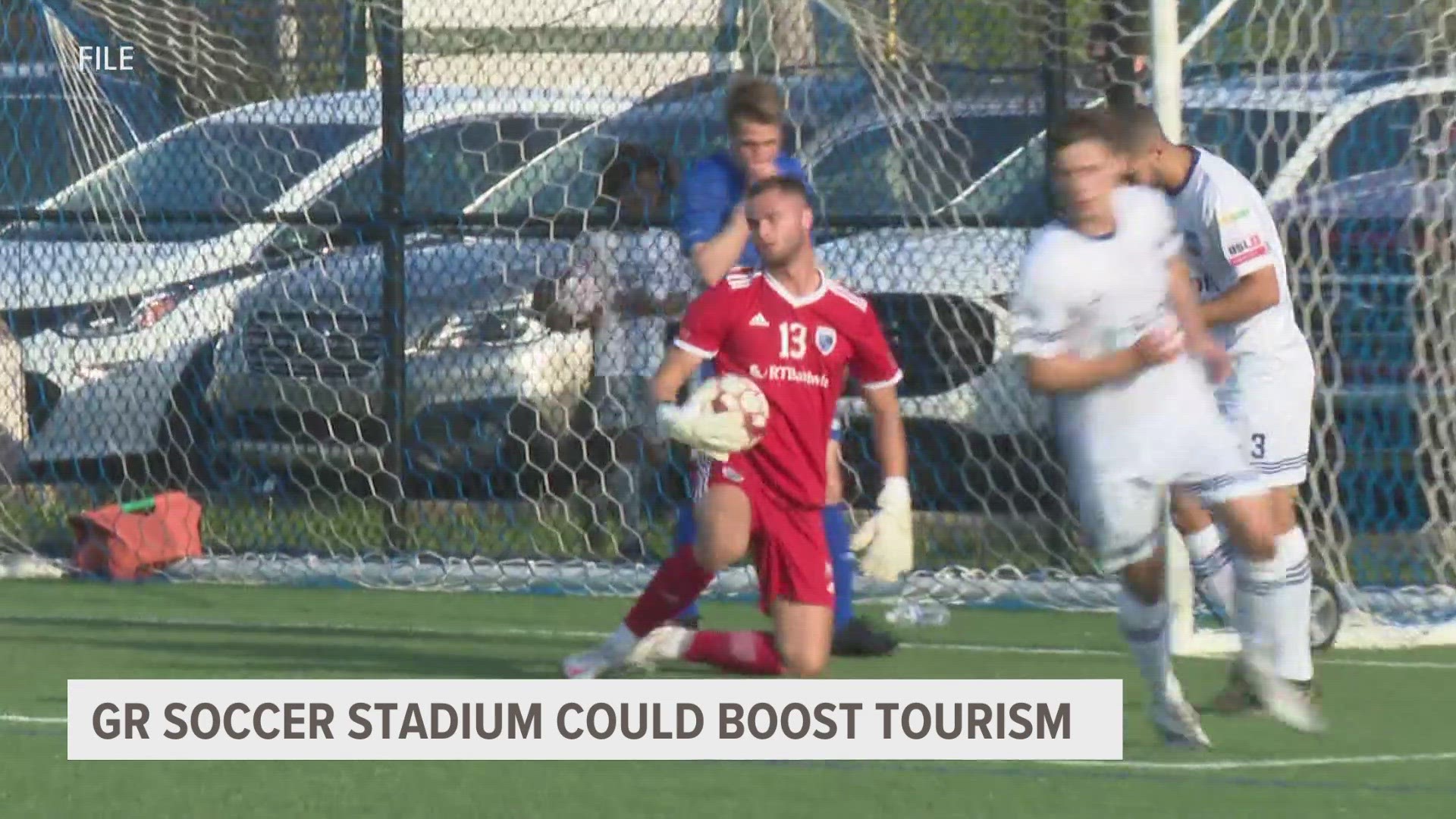
Credit: www.wzzm13.com
Frequently Asked Questions On How Does Sport Boost Tourism
How Does Sports Impact Tourism?
Sports have a big impact on tourism. Hosting major sporting events attracts visitors from all over the world, boosting local economies and creating jobs. Sports-related tourism also encourages the development of sporting facilities and infrastructure, creating new opportunities for tourists to engage in recreational activities.
Additionally, sports events promote the destination on a global scale, leading to long-term benefits for the tourism industry.
Do Major Sports Events Enhance Tourism Destinations?
Yes, major sports events do enhance tourism destinations as they attract a large number of visitors and generate revenue for the destination. These events create a positive image of the host city and attract international attention. Visitors can also experience the local culture, food and hospitality, which in turn, supports local businesses and creates job opportunities.
How Do Sporting Events Boost The Economy?
Sporting events boost the economy by attracting tourists and generating revenue through ticket sales, merchandise, and food and beverage sales. They also create jobs in the tourism and hospitality industries, and increase demand for transportation and accommodation services. This boosts local businesses and helps to stimulate economic growth in the host city or region.
Conclusion
Sport has proven to be a powerful tool in boosting tourism. Hosting major sporting events, building sports facilities and promoting sports activities are just some ways the tourism industry can benefit from sports. As more and more people participate in sports and travel to watch events, the potential for economic growth and community development is huge.
By leveraging the power of sport, countries and cities can attract millions of visitors, create jobs, and generate revenue while showcasing their unique cultural and natural heritage. Sport and tourism go hand in hand, and the benefits are enormous.

